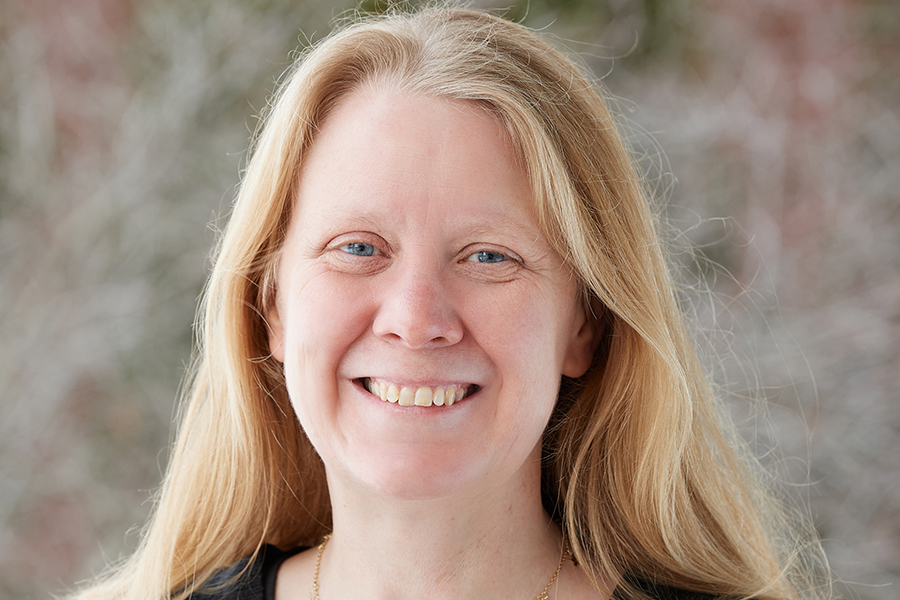Faculty Profile: Mareike Wieth
Related Programs
Related Posts
Connect With Us
“We all have areas we love to study, and for me it’s creativity.”

Dr. Mareike Wieth was named Albion College’s Teacher of the Year for the 2019-2020 academic year.
Dr. Mareike Wieth’s long-term research on the subject—namely, how some people are more creative in the morning and others at night—has garnered a wealth of national media attention. The professor and chair of psychological science and her findings have been chronicled in The Atlantic, Psychology Today and numerous other science publications.
In recent years Wieth has expanded her research. Currently she is working with an Albion student to study the relationship between eating disorders and creativity, and how creative students can be creative with everyday devices such as cell phones.
Wieth, who has been teaching, mentoring and collaborating with Albion students since 2005, sometimes reflects on her long journey to arrive at the work she loves doing.
“I lived in Germany until I was 12,” says Wieth, who was born near Heidelberg. “My parents decided it would be fun to move to the U.S.”
With knowledge gained from a few English lessons, Wieth and her family settled near Cleveland, Ohio. Three days after arriving, she was introduced to the American middle school, often a social minefield even for kids born and raised in the U.S.
“There was a lot I didn’t understand,” Wieth says. “It was bewildering. But it’s amazing how quickly you learn when you’re thrown into a middle school environment. By the seventh grade, I was helping my parents with English.”
Wieth flourished in her new home and eventually decided to attend a small liberal arts college two hours away.
“As an immigrant, I was convinced I was going to be an international studies major,’’ she says. “But I couldn’t get into the introduction to international studies course, so I took intro to psychology, which was a two-semester requirement. I took the first semester and I said, ‘This is great,’ and I took the second semester. I never took intro to international studies.”
A Career Is Born
Wieth says those early courses “focused on brain and neuroscience and how the brain works, and that opened up an area of psychology that I thought was extremely fascinating.”
She would go on to earn her master’s and Ph.D. in psychology from Michigan State University, and land a visiting teaching spot at Albion that later turned into a tenured position.
Since then, Wieth has taken her interest in the brain’s inner workings directly to her students. It has always been her goal—indeed, she believes it’s a necessity—to include them in her innovative research projects.
“Sometimes they have really big ideas, so you have to help them narrow them down,” she said. “I’ll tell students that we will not tell you what to do. You can come to us with your ideas and we will help you shape them into something that can be done.
“I feel it’s a lot easier to teach students when they’re invested in the project,” Wieth continued. “Research and teaching, one informs the other. And when you can find that little hook that draws students in, that’s a great feeling. You see that and you say, ‘OK, I’ve got you.’”
